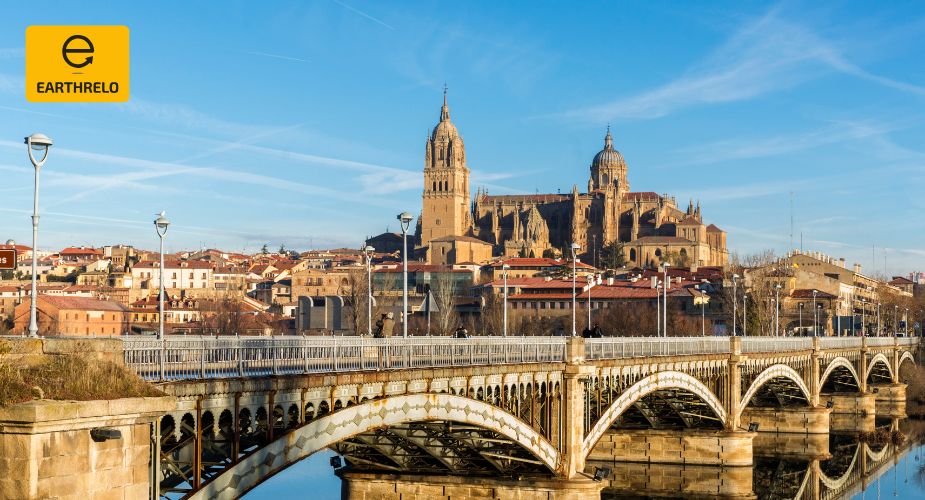- December 10, 2024
Ireland, known as the Emerald Isle, is a land of breathtaking landscapes, vibrant culture, and a welcoming community. With its strong economy and rich history, it has become a top destination for individuals and families looking to relocate. Whether you’re drawn to its scenic beauty or opportunities for growth, deciding to migrate to Ireland can be an exciting yet complex process.
Relocating to a new country involves more than packing up and leaving; it’s about preparing for a fresh chapter of life. From understanding local culture to managing practical arrangements, every step matters. This guide will help you streamline your journey and make your transition as smooth as possible.
Understanding Ireland’s Culture and Lifestyle
Relocating to Ireland means immersing yourself in a culture renowned for its warmth and hospitality. To truly enjoy life here, it’s essential to understand the traditions and lifestyle that make this country unique.
The Irish Way of Life
Ireland is celebrated for its sense of community. Whether in small villages or bustling cities, you’ll find people willing to lend a helping hand or share a chat over a cup of tea. Family ties are strong, and festivals play an integral role in bringing people together.
Embracing Irish Traditions
Irish traditions include everything from music and dance to storytelling and Gaelic sports. Participating in these activities not only enriches your experience but also helps you connect with locals. Annual events like St. Patrick’s Day are a must-see, showcasing Ireland’s spirit at its best.
Work-Life Balance
Ireland places high value on work-life balance. Many jobs offer flexible schedules, allowing you to enjoy time with loved ones or explore the countryside. This balance is one of the many reasons people choose to migrate to Ireland and embrace its relaxed yet productive atmosphere.
Cost of Living in Ireland
Understanding the cost of living is vital for anyone planning to migrate to Ireland. Expenses can vary based on where you choose to settle, but being informed will help you plan effectively.
Housing and Utilities
Housing costs are often the most significant expense. While cities like Dublin are more expensive, smaller towns offer more affordable options. Rent typically includes basic utilities like water and garbage disposal, but electricity and heating are additional.
Groceries and Dining
Grocery shopping is reasonably priced, especially if you purchase local products. Dining out can range from budget-friendly pubs to high-end restaurants, allowing you to enjoy a variety of options based on your budget.
Transportation
Public transportation, including buses, trains, and trams, is well-developed and cost-effective. Owning a car might be necessary in rural areas, but the associated costs of fuel and insurance should be factored into your budget.
Entertainment and Leisure
Ireland offers a plethora of free and affordable activities, from hiking trails to museums. Paid activities like cinema tickets or gym memberships are also reasonably priced, making leisure accessible to all.
Migrating to Ireland requires careful financial planning, but the quality of life here makes every investment worthwhile.
Housing and Accommodation
One of the first challenges when you migrate to Ireland is finding a place to call home. Housing availability and costs vary widely depending on the city or town you choose, making research and preparation crucial.
Rental Market Overview
Ireland’s rental market is competitive, particularly in urban areas like Dublin, Cork, and Galway. It’s common to encounter limited availability, so acting quickly when you find a suitable property is essential. Smaller towns often offer more spacious accommodations at lower prices, which may suit families or those seeking a quieter lifestyle.
Finding Accommodation
Begin your search online or through local listings, but be prepared to attend in-person viewings. Landlords typically request references and proof of income before approving tenants. Temporary housing, such as short-term rentals or serviced apartments, can be a good option while you look for a permanent place.
Types of Housing
Housing options include apartments, terraced houses, and detached homes. Decide what best suits your needs based on location, size, and budget. Remember to account for additional costs such as utilities and maintenance when planning your finances.
Employment Opportunities
When you migrate to Ireland, securing employment is a priority for many. Ireland’s thriving economy and strong industries make it a hub of opportunities for skilled workers and professionals.
Key Industries
Ireland is a leader in sectors such as technology, pharmaceuticals, and finance. Agriculture and tourism also play significant roles, particularly in rural areas. Exploring these industries can guide your job search and help you align your skills with market demand.
Job Search Strategies
Start your job hunt by updating your CV to match Irish standards and focusing on roles that align with your experience. Networking is invaluable; connecting with local professionals can open doors to unadvertised opportunities. Be sure to research companies and practice for interviews to make a strong impression.
Moving To Ireland?
Contact Us TodayEmployee Benefits
Irish employers often offer benefits such as paid leave, pensions, and health insurance. Understanding these perks will help you evaluate job offers and ensure you’re making an informed decision. Employment in Ireland not only provides financial stability but also facilitates a smoother transition into your new life.
Education System
Education is an essential consideration for families planning to migrate to Ireland. The country boasts a high-quality education system, making it an excellent place to raise and educate children.
Structure of the Education System
Ireland’s education system is divided into three levels: primary, secondary, and higher education. Attendance is mandatory for children aged 6 to 16, though many start at age 4. Public schools are free, while private schools charge tuition fees.
Enrolling in Schools
Begin the enrollment process as early as possible. Requirements often include proof of residence and previous academic records. For families who value specific curriculums, international schools are also an option in major cities.
Higher Education
Ireland is home to world-renowned universities and colleges offering diverse courses. For those planning to pursue further education, universities in cities like Dublin and Cork provide excellent opportunities to grow academically and professionally.
Migrating to Ireland ensures access to a robust education system that can meet the needs of individuals and families alike.
Healthcare Services
Access to quality healthcare is a vital part of your relocation journey when you migrate to Ireland. Ireland offers both public and private healthcare options, ensuring residents receive comprehensive medical care.
Public Healthcare System
Ireland’s public healthcare is administered by the Health Service Executive (HSE). Residents, including non-nationals, can access public services either free of charge or at a subsidized cost. However, waiting times for non-urgent care can be lengthy, making private healthcare a valuable supplement.
Private Healthcare Options
Many families and individuals opt for private health insurance to access faster and broader medical services. Private plans can cover hospital stays, specialized treatments, and consultations with private practitioners.
Registering with a GP
General Practitioners (GPs) are your first point of contact for medical care. Once you settle in, register with a local GP to ensure timely access to healthcare services. Having a registered GP is especially beneficial for routine check-ups and referrals.
Transportation and Infrastructure
When you migrate to Ireland, understanding the transportation network is essential for navigating daily life. Ireland offers a mix of public and private transport options, ensuring mobility across cities and rural areas.
Public Transportation
Ireland’s public transport system includes buses, trains, and trams, primarily serving urban centers. The Luas tram system in Dublin and intercity rail services provide efficient connectivity. Purchasing a Leap Card can reduce costs and make travel more convenient.
Driving in Ireland
For those living in rural areas or seeking more flexibility, driving is a practical choice. Ireland’s road network is well-maintained, but driving on the left side of the road may take some adjustment. If you plan to drive, check the requirements for converting your license or obtaining an Irish one.
Cycling and Walking
Many Irish cities are pedestrian and cyclist-friendly, with dedicated lanes and bike-sharing schemes. Walking and cycling not only save money but also allow you to enjoy Ireland’s picturesque landscapes.
Migrating to Ireland means embracing diverse transportation options tailored to your lifestyle, whether you prefer the convenience of public transit or the independence of driving.
Financial Considerations
When you migrate to Ireland, managing your finances effectively is key to a smooth transition. From banking to taxes, understanding Ireland’s financial systems will help you settle with confidence.
Opening a Bank Account
Opening a local bank account should be a priority after arriving in Ireland. Most banks require proof of identity and address, so ensure you have these documents ready. A local account makes it easier to manage daily expenses and receive your salary.
Tax System Overview
Ireland has a progressive tax system, with income tax rates varying based on earnings. Familiarize yourself with tax credits and deductions to make the most of your income. Filing taxes accurately is essential to avoid penalties and ensure compliance.
Budgeting for Living Expenses
Creating a realistic budget is crucial when settling into your new life. Factor in costs such as rent, groceries, utilities, and leisure activities. Staying on top of your expenses will help you enjoy the benefits of living in Ireland without financial stress.
Financial preparation is an integral step when planning to migrate to Ireland, ensuring stability and a successful integration into your new home.
Social Integration and Community Engagement
Relocating to a new country is about more than logistics; it’s about building a sense of belonging. When you migrate to Ireland, embracing the local community and culture can enrich your experience and make your transition smoother.
Building Connections
The Irish are known for their friendliness and warmth, making it easy to build connections. Attend local events, join community groups, or participate in activities like sports or music to meet new people and create a support network.
Language and Communication
Although English is widely spoken, some areas also use Irish (Gaeilge). While not necessary for daily life, learning a few phrases can enhance your interactions and show your respect for Irish heritage.
Celebrating Local Festivals
Participating in Irish festivals like St. Patrick’s Day or local fairs can deepen your appreciation for the culture. These events offer a unique opportunity to engage with the community and celebrate Irish traditions.
Also Read: 5 Things You Should Know Before You Move to Ireland as an American
Wrapping Up
Migrating to a new country is a life-changing experience filled with opportunities and challenges. When you migrate to Ireland, thorough preparation and an open mind are your greatest assets. From understanding the culture to managing financial and practical considerations, each step brings you closer to a successful transition.
Ireland offers a welcoming environment, rich traditions, and a high quality of life for those who embrace it fully. By immersing yourself in the community and planning thoughtfully, your move to Ireland can mark the beginning of an exciting new chapter. You may also read our post regarding moving to India from USA.





